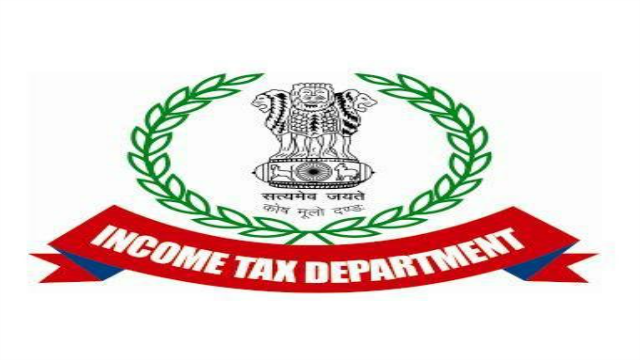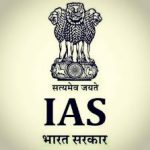Bhubaneswar: Central Board of Direct Taxes (CBDT) Tuesday reported that the net Direct Tax collections for the FY 2021-22 are at Rs. 14,09,640.83 crore showing a growth of over 49.02%.
CBDT chairman JB Mohapatra was briefing media persons, here on Wednesday.
Gross Direct Tax collections for the FY 2021-22 are at Rs. 16,34,454.95 crore showing a growth of over 32.75%.
Refunds amounting to Rs. 2,24,814.12 crore have been issued in the FY 2021-22.
More than 7.14 crore Income Tax Returns for AY 2021-22 have been filed on new e-filing portal.
Tax Collections
The figures of Direct Tax collections for the Financial Year 2021-22 show that Net Direct Tax collections are at Rs. 14,09,640.83 crore compared to Rs. 9,45,934.34 crore over the collections of preceding financial year i.e FY 2020-21, representing an increase of 49.02%. The net collection in FY 2021-22 has registered a growth of 34.16% over the collections of FY 2019-20 when the net collection was Rs. 10,50,680.56 crore, and a growth of 23.90% over the collections of FY 2018-19 when the net collection was Rs. 11,37,718.48 crore.
The Gross Direct Tax collection (before adjusting for refunds) for the FY 2021-22 stands at Rs. 16,34,454.95 crore compared to Rs. 12,31,270.52 crore in the FY 2020-21, representing an increase of 32.75%. The Gross collection in FY 2021-22 has registered a growth of 32.42% over the collections of FY 2019-20 when the gross collection was Rs. 12,34,258.42 crore and a growth of 25.84% over the collections of FY 2018-19 when the gross collection was Rs. 12,98,797.32 crore.
During FY 2021-22, 2.43 crore refunds were issued compared to 2.37 crore in FY 2020-21 amounting to Rs. 2,24,814 crore. This includes 2.01 crore refunds of AY 2021-22 itself due to faster processing of returns.
Income Tax Returns filed
More than 7.14 crore Income Tax Returns (ITRs) were filed for AY 2021-22 as on 31.03.2022 on the new e-filing portal, compared to 6.97 crore ITRs filed for AY 2020-21 till 31.05.2021 (extended last date of the preceding year) representing an increase of 2.4%.
Optimal utilization of technology has resulted in reduction of time taken to process the verified ITRs. The average processing time for ITRs filed for AY 2021-22 is 26 days. About 22.43% ITRs were processed on the same day as they were verified.
Statistics pertaining to Odisha Region
So far as the Budget collection of Odisha Region is concerned, the region not only collected the Budget target, but also exceeded it. Budget collection of Rs. 15,481 crore was achieved in FY 2021-22 against a target of Rs. 14,000 crore, resulting in achievement of 110.57%. The collection for FY 2021-22 marked an increase of 52.50% over the Budget collections of FY 2020-21 and 15.41% over collections of FY 2019-20. This includes Gross collection of Rs.18,055 crore and refunds of Rs. 2,574 crore resulting in net collection of Rs. 15,481 crore. TDS collections in FY 2021-22 were at Rs. 6,594 crore marking an increase of 36.09% over FY 2020-21 and 27.14% over FY 2019-20. Over 12.95 lakh ITRs were filed during FY 2021-22 compared to 10.44 lakh ITRs filed during FY 2020-21 and 9.92 lakh ITRs filed during FY 2019-20.
The growth in the region has largely been driven by the mining sector which has contributed to almost 53% of the overall revenue of the region.
Initiatives undertaken by the Department
The Department has undertaken several initiatives focussing on enhancing taxpayer services at every level and across the entire gamut of departmental functioning in recent times.
Harnessing the tools of information technology, artificial intelligence and data mining/analytics, the AIS has been rolled out and 26AS has been redesigned to give more information to taxpayers enabling correct ITR filing. The number and capacity of ASK centres across regions has been increased. Effective use of technology is being made to serve the taxpayers better and enhance the compliance experience. Facilities like e-PAN have been made available. A new e-filing portal has been launched with the aim to speed up the filing and processing of ITR, enabled by better data integration and consolidation.
A non-adversarial regime informed by nudge policy and reposing trust in the taxpayers has been adopted, which is reflected in various legislative and administrative reforms instituted by the Department. The provision of filing Updated Return u/s 139(8A) is the latest among the series of steps taken in this direction. This will provide an opportunity to taxpayers who have genuinely missed out on making proper disclosures of their income, to update/file ITRs. The orientation towards the nudge policy is also reflected in the adoption of tools of information technology to pool together and push to the taxpayers, third party information regarding their financial and high-value transactions. Adoption of faceless regime is another step towards easing compliance for taxpayers and enhancing fairness and transparency in the assessment process.
Consistent with the policy of the government to provide certainty in the tax policy and regulatory framework, the retrospective amendment of 2012 was rolled back and nullified. Closure has been given to the cases as refunds due to the entities have also been issued in majority of the cases. A very large number of APAs have also been signed. A stable and certain tax regime has been instituted. To cut down unnecessary litigation which is burdensome for taxpayers, provision to reduce repetitive appeals has been rolled out.
These, among other measures, have been instrumental in boosting the share of Direct Taxes to more than 51% in the total tax revenues of the government. With this taxpayer-centric and service-oriented approach, it is hoped to further broaden the tax-base and increase the share of Direct Taxes in the total tax revenues.







